Xinying Jia
I started my research position in OIST in January 2022. Before, I have been studying psychology and psychotherapy science and worked as a psychotherapist in Vienna. My specialization is systemic therapy. I have chosen this specialization because I am interested in understanding how psychological change can be enabled from the systems perspective, i.e., taking into account how individuals are embedded in networks of social relations. While many other schools of psychology and psychotherapy limit their focus to intrapsychic events, systemic therapy pays greater attention to the systems in which individuals are living, utilizing the ecology of mind.
This interest has led me to my current research project on the
Social dynamics and evolution of incentive cultures utilizing fear, shame, and guilt.
In this project, I am trying to understand how social sentiments such as fear, shame, and guilt regulate selfish behavior and promote cooperation. For this work, I am developing and analyzing agent-based models in the burgeoning field of psychological game theory. More details are described below.
The smooth functioning of societies critically depends on cooperative behaviors protecting multiple common goods. For example, cooperative behaviors are required for civil security and the rule of law, for systems supporting childcare, health, and retirement, for collective enterprises and economic growth, as well as for sustainable development and environmental stewardship. Since all cooperative behaviors are highly vulnerable to free-riding and cheating, societies must evolve and maintain systems of positive and negative incentives through which, respectively, cooperators are rewarded and non-cooperators are punished. Such incentives can be either material or social: while the former impact the material status of agents, including their physical wellbeing, the latter impact their social status, often in the form of altering their reputation, which may affect their mental wellbeing as well as the further development of their material status.
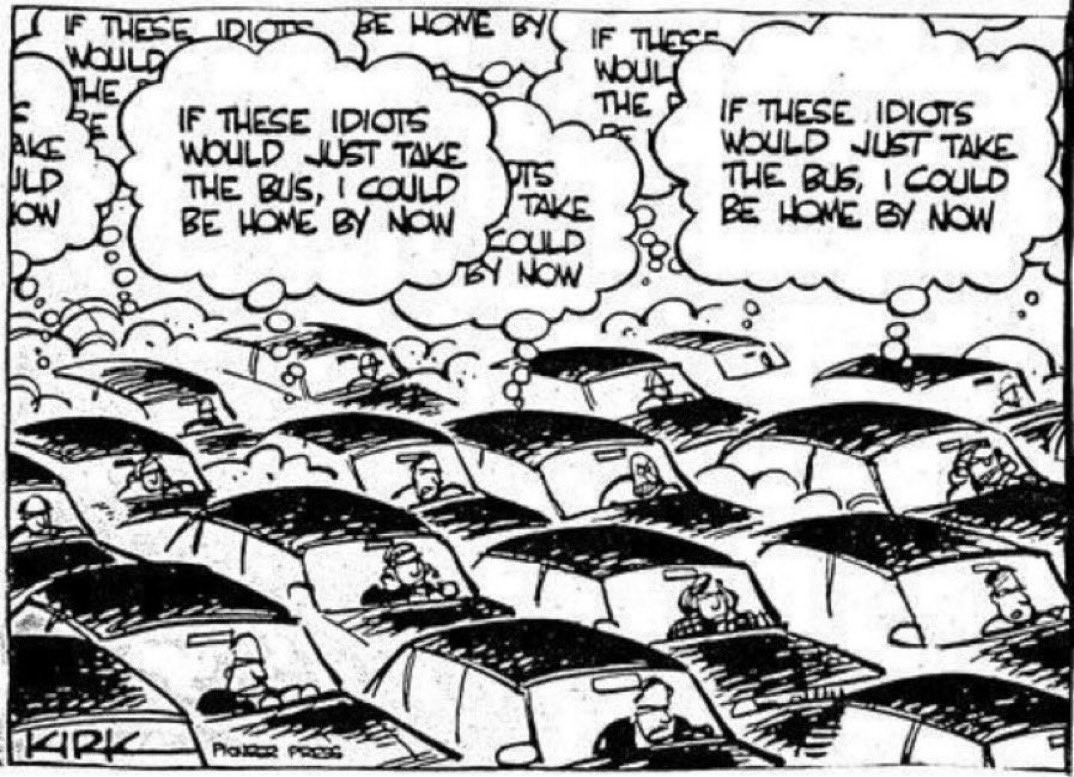
Figure 1. An example of failed cooperation in protecting the common good of smooth traffic flow. Source: Kirk Anderson, Pioneer Press.
As documented by cultural anthropology, incentive cultures can be of three fundamental types. These are, alternatively, based on the social sentiments of fear, shame, and guilt.
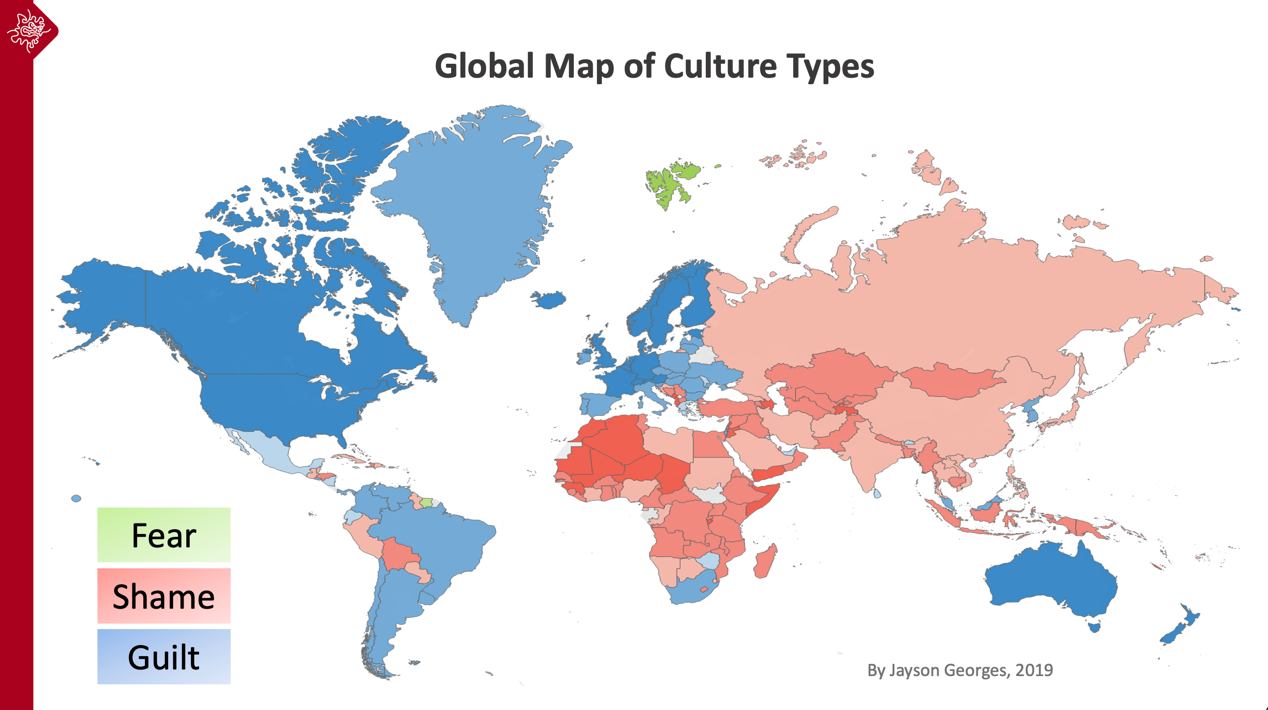
Figure 2. Global map of the regional dominance of three types of incentive cultures. Source: Jayson Georges.
In all incentive cultures, non-cooperative behavior is discouraged in two steps: first, such a behavior must be observed, and second, a sanction, in the form of a negative incentive or punishment, must then be applied against it. In a fear-based incentive culture, observing and sanctioning are both external processes. This means that the fear a potential perpetrator associates with a non-cooperative behavior increases with the probability that an external agent observes this behavior, as well as with the probability that an external agent, potentially different from the observing agent, is willing to and capable of sanctioning the perpetrator. If either of these probabilities are sufficiently small, fear-based cooperation is bound to break down. In a shame-based incentive culture, in contrast, observing remains an external process, while sanctioning becomes a primarily internal process: the perpetrator is sanctioning himself or herself, employing the social sentiment of shame. Shame-based cooperation can thus occur even in the absence of external sanctioning. Finally, in a guilt-based incentive culture, observing and sanctioning both become internal processes: the perpetrator is observing and sanctioning himself or herself, employing the social sentiment of guilt. Guilt-based cooperation thus requires neither external observing nor external sanctioning.
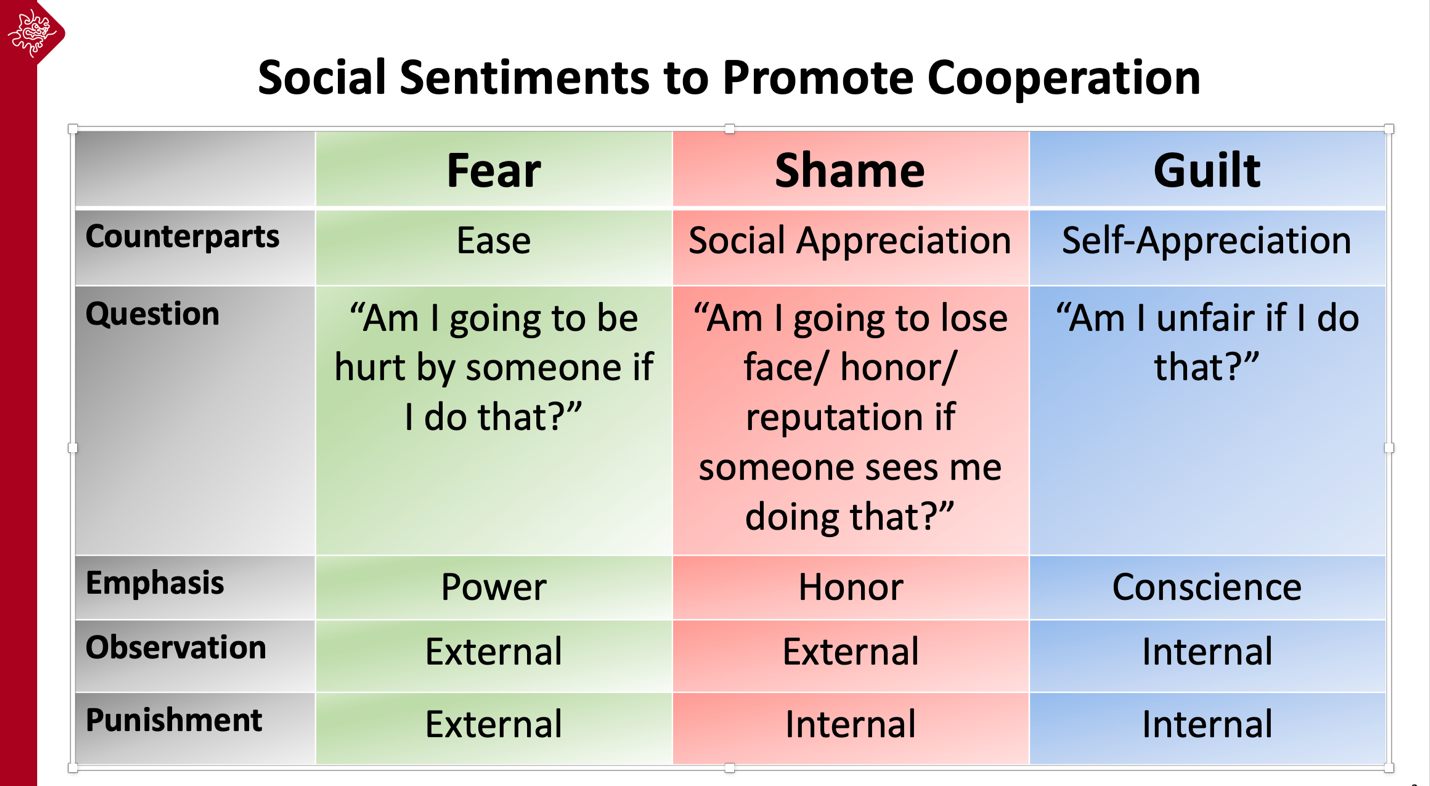
Figure 3. Comparison of the investigated three types of social sentiments.
To date, game-theoretical models addressing the social dynamics and evolution of incentive systems have largely restricted attention to the mechanisms associated with fear-based cooperation, ignoring the crucial roles played by other social sentiments. In modern societies, however, shame and guilt are pivotal for establishing and maintaining cooperative behaviors. Consequently, the extent to which psychological processes and social interactions revolve around these sentiments can hardly be overestimated. Likewise, the elaborate training efforts invested in different cultures – through parents, teachers, employers, and peers – in instilling what they consider socially appropriate configurations of fear, shame, and guilt are enormous, and yet, have essentially been left unaddressed in game-theoretical studies.
In my research, I am elucidating the dynamics of cooperation involving the social sentiments of fear, shame, and guilt. I am conducting this research in three steps. First, I have reviewed the literature to identify empirical evidence and sociological assessments of the mechanisms enabling fear-, shame-, and guilt-based cooperation. This step includes analyzing the relative strengths and weaknesses of these mechanisms, as well as the differential conditions under which they are likely to function, falter, or fail. Second, I am developing a series of innovative game-theoretical models that capture the key insights established by this review. These models enable studying the complex social dynamics underlying fear-, shame-, and guilt-based cooperation. Third, I am considering how to integrate these models into an overarching framework that allows me to investigate under which conditions fear-, shame-, and guilt-based cooperation are expected to emerge through cultural evolution and how transitions between and mixtures of these different incentive cultures are likely to occur. Particular attention is given to the cultural evolution leading to the gradual internalization of incentive processes, as a society’s dominant social sentiments shift from fear to shame and from shame to guilt.
A snapshot of my preliminary model describing the evolution of fear-based cooperation is shown below.
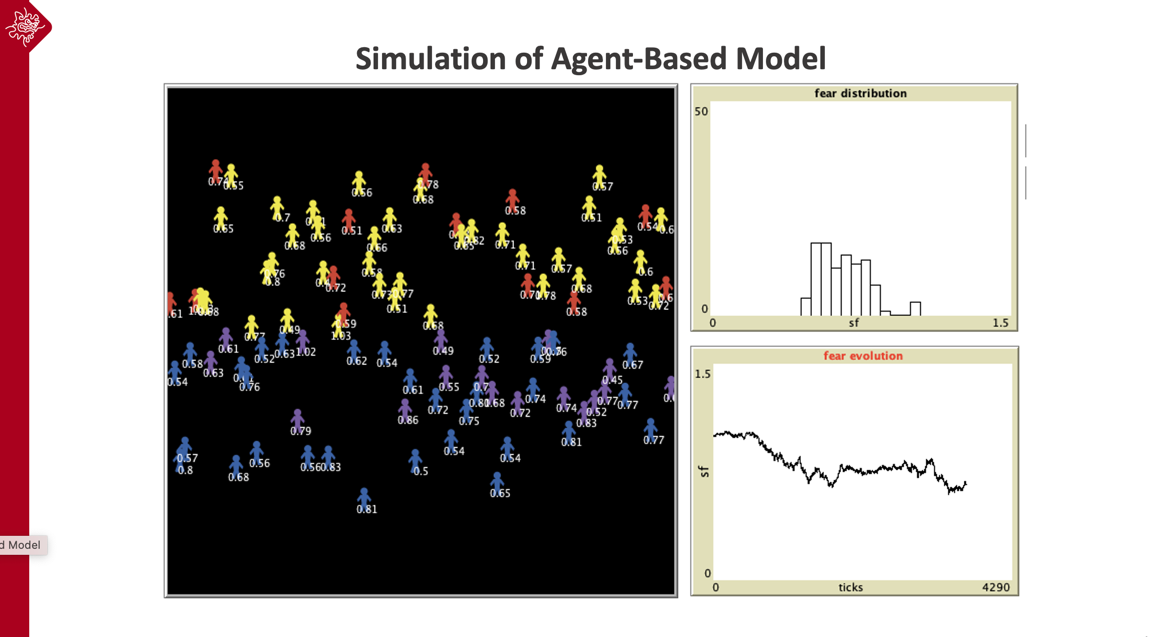
Figure 4. Visual outputs from an agent-based model for understanding the evolution of fear-based cooperation.
Currently, I am also working on a review paper on the
Treatment choices for major depression.
Depression is the leading cause of disability. It is a highly prevalent mental illness currently affecting more than 300 million people worldwide. That is 3.8% of the world population or about every 25th person currently alive. At worst, depression can lead to suicide, which is the second-leading cause of death among young people between the ages of 15 and 29 years.
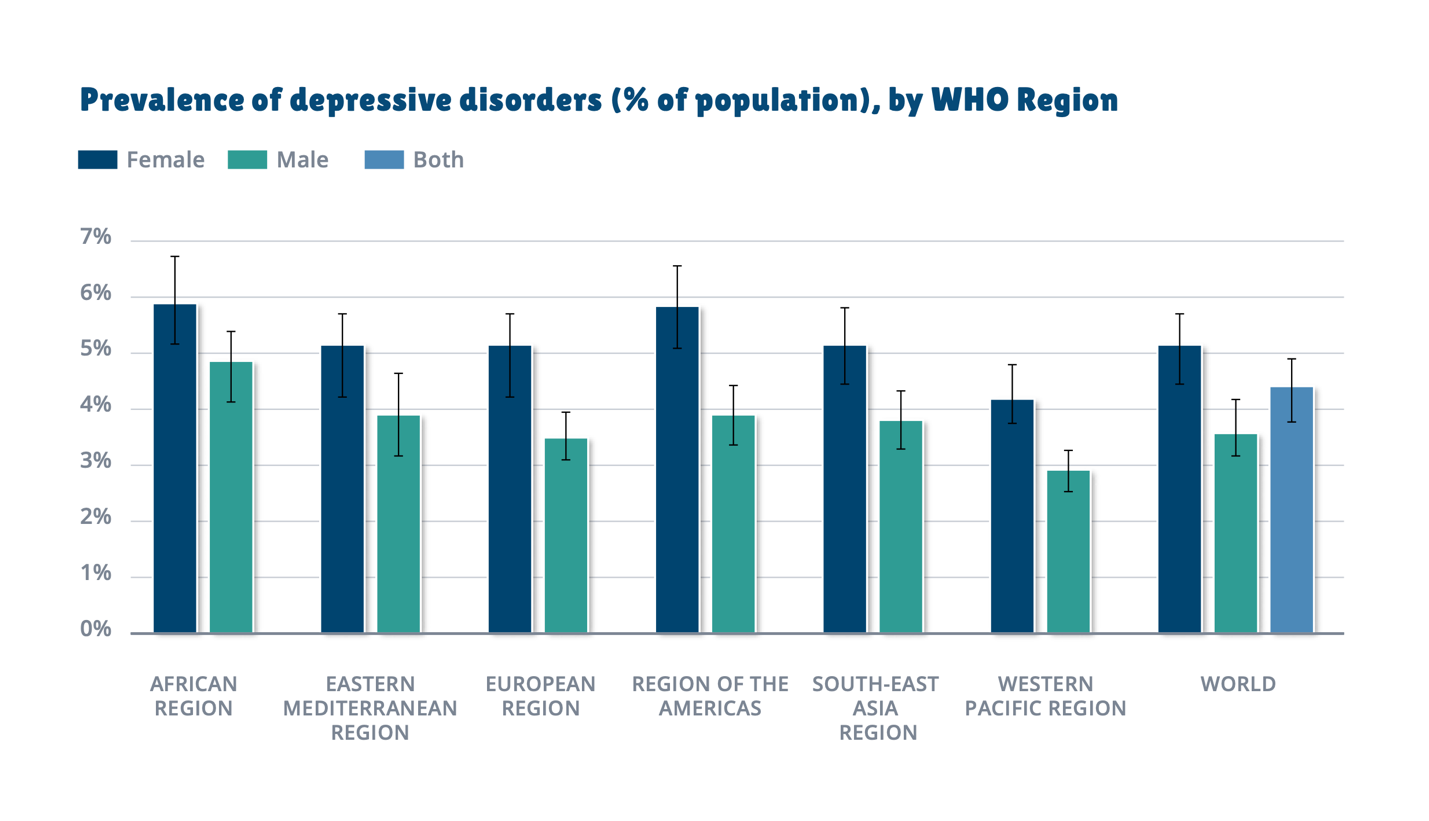
Figure 5. Prevalence of depressive disorders across world regions. Source: World Health Organization (WHO).
Yet, the current diagnostic systems and the effectiveness of available treatments for managing depressive disorders continue to be severely limited. Despite great advances in medical knowledge, the growth of our understanding of the causation, course, classification, and prognosis of depression is not comparable with progress made on other health problems. This is because depression usually involves more than one aspect of psychological, sociological, and biological imbalances. By comparing the diagnostic tools and the available treatments, we might achieve a better understanding of how best to treat this condition.
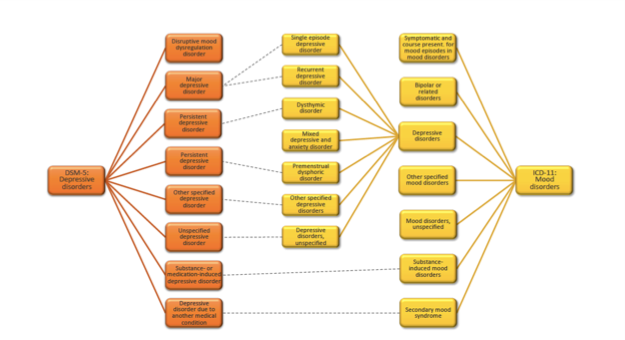
Figure 6. Correspondence between the classification of depressive disorders in the Diagnostic and Statistical Manual of Mental Disorders, Fifth Edition (DSM-5), and of mood disorders in the International Classification of Diseases, Eleventh Edition (ICD-11).
Physicians have typically been in favour of attributing these causes to physiological imbalances, while psychologists have focused their efforts on clarifying psychological dispositions. Seeing depression as originating from purely biological causes is not enough for explaining the nature of this mental illness as a complex bio-social-psychological construction. From the evolutionary perspective, we must consider humans as adaptive agents and interpret their psychological states as dynamic equilibria affected by the interaction between the environment and the biological individual, changing along the timeline.

Figure 7. Systemic interactions (green) through which the culture, predisposition, and context of individuals affect their beliefs and behaviours, feeding back on the context in which they are living. Systemic approaches (blue) can utilize the resultant leverage points.
The differential vulnerabilities of individuals to the aforementioned mental disorders are determined by their historical, cultural, contextual, and constitutional predispositions. When vulnerable individuals experience overwhelming adversity, they may develop harmful mismatches in their belief systems. Such wrong belief systems then directly influence their behavioural patterns. Constructing an integrated model of these systemic interactions and customizing it to a vulnerable individual’s circumstances helps establish a full view of the problems such an individual is experiencing. This, in turn, opens many possibilities for generating therapeutically fruitful hypotheses and effective personalized treatment plans.



